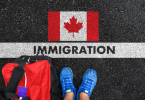If you are a Canadian citizen or permanent resident, you may want to bring your family members to Canada to live with you. However, the process of sponsoring your relatives can be complicated and time-consuming, especially if they are not eligible for the regular family sponsorship program. Fortunately, there is another option for you to reunite with your parents and grandparents: the super visa.
In this blog post, we will explain what the Super Visa is, how it differs from the regular visitor visa, the requirements and benefits, and how you can apply for it.
What is the Super Visa?
The Super Visa is a special visitor visa category introduced in 2011 by the Canadian government to facilitate family reunification. The Super Visa allows eligible parents and grandparents of Canadian citizens and permanent residents to visit Canada for extended periods, up to two years per visit. The Super Visa also grants multiple entries to Canada for up to 10 years as long as the visa remains valid.
The Super Visa is different from the regular visitor visa, which only allows a maximum stay of six months per visit and may require a new application or an extension for each entry. The Super Visa also has more flexible eligibility criteria than the regular visitor visa, as it does not require an invitation letter from a Canadian host, proof of purpose of travel, or proof of ties to the home country.
However, the Super Visa also has some additional requirements that the regular visitor visa does not have, such as:
- Proof of parental or grandparental relationship to a Canadian citizen or permanent resident
- Proof of medical insurance coverage from a Canadian company for at least one year, with a minimum coverage of $100,000
- Proof of financial support from the Canadian child or grandchild or their spouse or partner
- A medical exam from a designated panel physician
- A letter of invitation from the Canadian child or grandchild, or their spouse or partner, stating their commitment to provide financial support and accommodation for the duration of the stay
What are the benefits of the Super Visa?
The Super Visa offers several benefits for both the applicants and their Canadian family members, such as:
- Longer and more frequent visits: The Super Visa allows parents and grandparents to stay in Canada for up to two years per visit, without having to renew their status every six months. This means they can spend more quality time with their children and grandchildren and fully experience life in Canada.
- Multiple entries: The Super Visa grants multiple entries to Canada for up to 10 years, as long as the visa remains valid. This means parents and grandparents can travel back and forth between Canada and their home country as often as they wish without having to apply for a new visa each time.
- Faster processing: The Super Visa application process is usually faster than the regular visitor visa process, as it does not require an invitation letter from a Canadian host, proof of purpose of travel, or proof of ties to the home country. The average processing time for the Super Visa is about eight weeks, compared to 12 weeks or more for the regular visitor visa.
- Easier eligibility: The Super Visa has more flexible eligibility criteria than the regular visitor visa, as it does not require an invitation letter from a Canadian host, proof of purpose of travel, or proof of ties to the home country. The only requirements are proof of parental or grandparental relationship to a Canadian citizen or permanent resident, proof of medical insurance coverage from a Canadian company for at least one year, proof of financial support from the Canadian child or grandchild or their spouse or partner, a medical exam from a designated panel physician, and a letter of invitation from the Canadian child or grandchild, or their spouse or partner.
- Potential pathway to permanent residence: The Super Visa does not guarantee permanent residence in Canada, but it can be a potential pathway for parents and grandparents who wish to apply for it in the future. By staying in Canada for extended periods on the Super Visa, parents and grandparents can demonstrate their integration into Canadian society, their attachment to their family members in Canada, and their contribution to Canada’s economy and culture. These factors can increase their chances of being selected under the Parents and Grandparents Program (PGP), which is an annual lottery-based system that invites eligible parents and grandparents of Canadian citizens and permanent residents to apply for permanent residence.
How do you apply for the Super Visa
The Super Visa application process involves two main steps: applying online or on paper through Immigration, Refugees and Citizenship Canada (IRCC) and submitting biometrics and passports at a Visa Application Centre (VAC).
The first step is to apply online or on paper through IRCC. To apply online, you will need to create an account on the IRCC website, fill out the application form, upload the required documents, pay the fees, and submit your application. To apply on paper, you will need to download and print the application form, fill it out, attach the required documents, pay the fees, and mail your application to the appropriate office.
The required documents for the Super Visa application include:
- A valid passport
- Two passport-sized photos
- A copy of the biographical page of the passport of the Canadian child or grandchild or their spouse or partner
- A proof of parental or grandparental relationship to a Canadian citizen or permanent resident, such as a birth certificate, an adoption certificate, or a marriage certificate
- A proof of medical insurance coverage from a Canadian company for at least one year, with a minimum coverage of $100,000
- A proof of financial support from the Canadian child or grandchild or their spouse or partner, such as a bank statement, an employment letter, a pay stub, or a tax return
- A medical exam from a designated panel physician
- A letter of invitation from the Canadian child or grandchild, or their spouse or partner, stating their commitment to provide financial support and accommodation for the duration of the stay
The fees for the Super Visa application include:
- The processing fee: CAD 100 per person
- The biometrics fee: CAD 85 per person
- The visa fee: CAD 500 per person
The second step is to submit biometrics and passports at a VAC. After you submit your online or paper application, you will receive an instruction letter from IRCC that will tell you where and when to give your biometrics (fingerprints and photo) and your passport. You must book an appointment at a VAC in your country of residence and bring your instruction letter, passport, and biometrics fee receipt. The VAC will collect your biometrics and passport and send them to IRCC for processing.
You can check the status of your Super Visa application online through your IRCC account or the online tool on the IRCC website. You can also contact the VAC where you submitted your biometrics and passport to inquire about your application.
If your Super Visa application is approved, you will receive a confirmation letter from IRCC and your passport with the visa sticker from the VAC. You can then travel to Canada and present your passport and confirmation letter to the border officer upon arrival. The border officer will stamp your passport and issue you a visitor record that will indicate the expiry date of your Super Visa.
If your Super Visa application is refused, you will receive a refusal letter from IRCC explaining the reasons for the refusal and your options for appeal. You can also reapply for the Super Visa if you can address the issues that led to the refusal.
Conclusion
A super visa is a great option for parents and grandparents who want to visit their family in Canada for extended periods. It offers more flexibility and convenience than a regular visitor visa. However, it also requires more documentation and proof of financial support from your child or grandchild in Canada. If you are interested in applying for a super visa, make sure you meet all the eligibility criteria and follow all the steps carefully. You can also consult an immigration expert or lawyer if you need any assistance or guidance.
We hope this blog post has been helpful and informative. If you have any questions or comments, please leave them below. We would love to hear from you!






